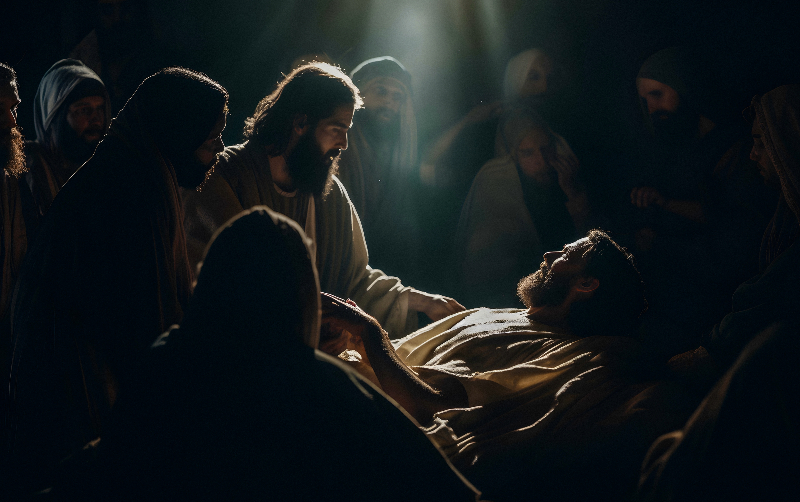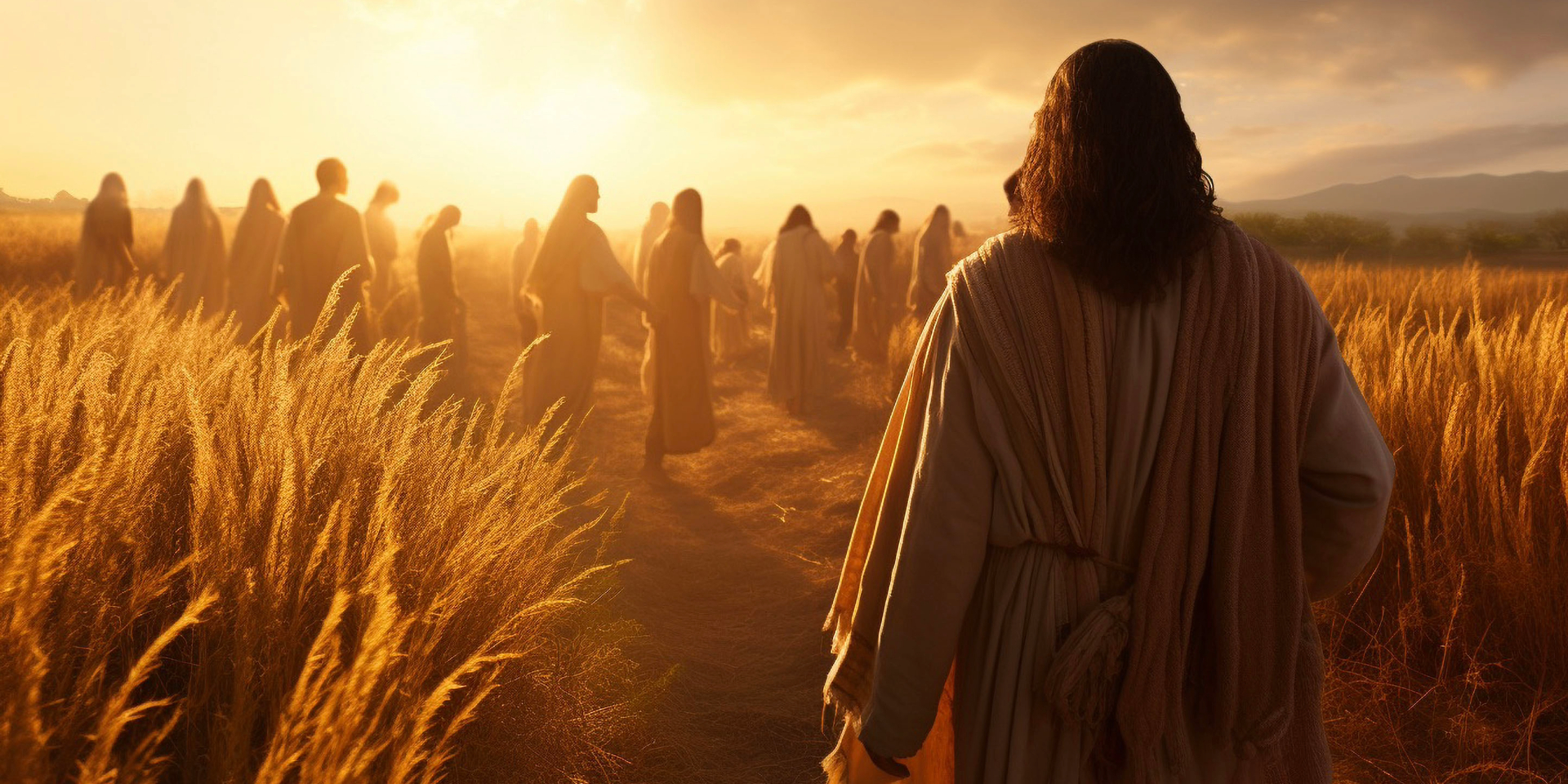“Do not think that I have come to abolish the Law or the Prophets; I have not come to abolish them but to fulfill them” (Matthew 5:17).
To best understand what Jesus believed about the Sabbath, it is important to move from the explicit statements He made to those that need further elaboration to clarify their meaning. Jesus’ words in Matthew 5:17 are explicit and provide a clear direction for interpretation. The mission that Jesus undertook during His life on earth was not to nullify or change the law revealed in the Old Testament, but to bring it to its true meaning,[1] as was intended from the beginning, and this was done simultaneously with the fulfilment of the Messianic prophecies in Jesus (see also the reference to “prophets” in Matthew 5:17).[2] The life of Jesus was therefore a fulfilment of the Prophets and a rehabilitation of the original meaning of the Law; in other words a confirmation of the whole of Scripture.
Additionally, a perfect God could not ask His creatures to obey a law that was not perfect. By definition, everything that is perfect is without error and without ambiguity; at the same time, unfortunately, althouhg it is perfect, it perfect can be interpreted erroneously and ambiguously.[3] Therefore, when we observe the corrective tone of Jesus’ sermon in Matthew chapters 5-7, we can already anticipate that the subject of the correction could not be God’s law, but its interpretation by mankind. Jesus Himself confirms that this understanding is correct in Matthew 5:17. The corrections made by Jesus were aimed at human rules[4] which were based on a misinterpretation of the Scriptures and were inconsistent with God’s intentions.
Ultimately, Matthew 5:17 expresses a self-evident truth: a perfect God does not overrule His own perfect principles. The sacrifice of Jesus demonstrated beyond a shadow of a doubt that God has not given up on us, nor on the righteousness and holiness of His laws (1 John 4:10; cf. Psalm 89:14).
The Sabbath, a part of God’s perfect law
With this key to interpretation in hand, we come to the question in the title of this article: What did Jesus believe about the Sabbath?
Blessed and sanctified at the creation of the world,[5] the Sabbath was placed by God at the centre of the Decalogue, among the commandments written by His finger on stone. As someone who came to fulfil the law, Jesus kept the Sabbath all throughout His life. The Gospels show Him attending synagogue worship on the Sabbath. He announced His public mission on a Sabbath (Luke 4:16) and left His earthly life without giving any indication that He was anticipating or preparing to abolish the Sabbath as God’s appointed day of rest and worship.
Nevertheless, Jesus was accused several times by some of His contemporaries of violating or “breaking” the Sabbath (John 5:16, 18; 9:16). In this article we will trace the categorical way in which Jesus proved the accusations to be false, so that at His trial the Sabbath-breaking thesis did not even appear in the evidence used against Him.
Let us first clarify the nature of the charge that Jesus broke the Sabbath. In all the years of His work, Jesus did nothing on the Sabbath that God had told people not to do. There is no requirement in Scripture concerning the Sabbath that Jesus violated. Then what about the six separate instances in which Jesus was accused of breaking the Sabbath?[6] In five of them, the accusation arose because Jesus took the initiative to heal someone on the Sabbath. But the argument that a healing was contrary to God’s intention regarding Sabbath observance is so preposterous that we need not deal with it in this article.[7] Suffice it to say that Jesus found the argument so absurd that He not only rejected it, but continued to heal on the Sabbath precisely to show that such action was legitimate, despite the theological obtuseness of Jewish religious law on the matter.
Remarkably, there remains only one instance in which Jesus was accused of breaking the Sabbath for any reason other than healing: the episode in which Jesus’ disciples picked a few heads of grain on the Sabbath in order to eat the kernels. Therefore, the basis of the accusation was not an action of Jesus, but the fact that He declared His disciples innocent, in contradiction to the judgement of the Pharisees. In order to better understand the passages in Matthew 12:1-8, Mark 2:23-28 and Luke 6:1-5, it is first necessary to answer some questions raised by the episode of the plucking of the heads of grain.

Who decided that picking a few heads of grain on the Sabbath to satisfy hunger was a Sabbath-breaking act?
As many as 11 of the 39 main categories of activity prohibited on the Sabbath by the Mishnah (the handbook of Jewish religious law, a collection of Jewish interpretations of the law given by Moses that circulated orally until the beginning of the 3rd century AD) were related to the process of making bread: sowing, ploughing, reaping, binding sheaves, threshing, winnowing, sorting (separating the good from the bad), grinding, sifting, kneading, and baking.[8] From a strict point of view it could be argued that Jesus’ disciples violated Jewish religious law, and Jesus does not deny it.
Yet Jesus declares that His disciples are innocent. Such a conclusion could be formulated along one of three lines of reasoning (to which we will refer throughout the article): 1) Jesus believed that there were circumstances necessary to formulate a legitimate exception to the rule; 2) Jesus believed that some formulations of Jewish religious law and/or its application were not in accord with the Scriptures whose interpretation He had come to restore; 3) Jesus had the right, by virtue of His divine authority, to suspend the binding nature of the commandment by permitting Sabbath breaking. Perhaps the first defence was the easiest for His opponents to anticipate, and that is where Jesus begins His response.
An exception to the rule?
It was common knowledge that if a Jewish person was in danger of death, he would not break the Sabbath by running away or taking other actions to save his life.[9] It was also known that the Sabbath was the time when priests were allowed to serve in the Temple. Therefore, Jesus appealed to known facts and gave the critics two illuminating examples: 1) the situation of the fugitive David, who received and ate the consecrated bread from the Sanctuary, which only priests were allowed to eat (Matthew 12:3-4; Mark 2:25-26; Luke 6:3-4), and 2) priests serving in the temple on the Sabbath without being accused of breaking it (Matthew 12:5). The examples given by Jesus show that there are higher principles in the application of the Law which take precedence over other principles of God’s Law. In the first example, the principle of protecting life took precedence over the principle of protecting the sanctity of the Sanctuary. In the second case, the principle of uninterrupted service in the Sanctuary took precedence over the principle of Sabbath rest.
With these examples, however, Jesus is not citing an exception, but rather explaining how God’s law works. Its universal principles are not to be practised in isolation, but simultaneously. And this includes another principle: the hierarchy of values. Using the principle of the hierarchy of values, Jesus suggests a parallel between the Temple and Himself (Matthew 12:6), and implicitly between the priests and His disciples—if He is greater than the Temple, then those who serve Him are no more guilty of picking heads of grain to eat during the service than the priests who work on the Sabbath during the Temple service. Jesus uses the accusation of Sabbath breaking didactically. By associating the Sabbath breaking alleged by His critics in this situation with the priests’ working on the Sabbath in the Temple, Jesus ultimately demonstrates that there is no de facto Sabbath breaking in either situation.
Jesus’ answer could have ended there. This argument alone was powerful enough, but His desire was not limited to demonstrating that the disciples were not guilty of Sabbath breaking. Jesus was interested in clarifying the nature of the Sabbath, the proper way to keep the Sabbath, and His relationship to the Sabbath.
What does it mean that the Sabbath was made for man, and not man for the Sabbath?
Anyone who has understood that God desires mercy rather than sacrifice, Jesus continues, understands why His disciples are innocent (Matthew 12:7). While Mark and Luke do not include this statement of Jesus, there is another expression in Mark’s Gospel that is close to Matthew’s: “The Sabbath was made for man, not man for the Sabbath” (Mark 2:27).
This expression of Jesus predates by some 200 years and probably influenced that of Rabbi Simon b. Menasiah,[10] who, on the basis of the verse in Exodus 31:14, formulated the principle that saving a life is more important than keeping the Sabbath: “The Sabbath is given to you, but you are not surrendered to the Sabbath.”[11]
We have reason to believe that the statement of Jesus (“The Sabbath was made for man, and not man for the Sabbath”) went beyond the meaning that the Jews gave it two centuries later. If we support this with the other statement, “If you had known what these words mean, ‘I desire mercy, not sacrifice,’ you would not have condemned the innocent” (Matthew 12:7), it is clear that Jesus is emphasising mercy as an independent principle that seeks the good of people and the meeting of their needs. The Sabbath was created by God for the blessing of mankind, not as an occasion for oppression through torturous and unnecessary restrictions. The holiness of the Sabbath was established by God as a source of blessing, not curse. Jesus rejects Shabbat halakha (Sabbath-keeping rules)[12] that interfere with “loving one’s neighbour” and meeting their needs. Jesus regarded such human traditions as meaningless restrictions on the fourth commandment of the Decalogue.[13] In doing so, Jesus was not for a moment contradicting Scripture—on the contrary, He showed how it should be interpreted.

What does it mean that Jesus is “Lord of the Sabbath”?
Probably the most notorious theologian who believed that the episode of the plucking of the heads of grain on the Sabbath was a violation of the Sabbath was Martin Luther.[14] Luther wrote that in defending the disciples on this occasion, Jesus “violated the Sabbath and said: ‘The Sabbath does not concern Me. I am its Lord, and the Sabbath cannot lord it over Me.'” In Luther’s view, “Christ observes and disregards the Law of Moses at will…. If He chooses to follow Moses, it is right. If He prefers not to do so, it is not wrong; for He owes the Law nothing, since He is Lord of the Law and the Sabbath. He has the right to follow His own will and pleasure, for He is King and Baron.” Luther therefore held that Jesus was under no moral obligation to act in accordance with the divine actions of old, but could act as He pleased because He was greater than the Law.
Luther’s view, based on his interpretation of Jesus’ declaration that He was the Lord of the Sabbath, is unfortunately at odds with Jesus’ clear statement: “Do not think that I have come to abolish the Law or the Prophets; I have not come to abolish them, but to fulfil them. For truly I tell you, until heaven and earth disappear, not the smallest letter, not the least stroke of a pen, will by any means disappear from the Law until everything is accomplished” (Matthew 5:17-18).
In addition to this reaffirmation of the universal validity of God’s Law, we have further evidence that Jesus did not think as Martin Luther believed. In particular, whenever He was accused of “not keeping the Sabbath” (John 9:16), Jesus did not accept the accusation. He responded in various ways, showing that healings were not Sabbath breaking, that His disciples were not guilty, and that the Sabbath was to be understood differently from the way the Pharisees understood it.
Luther’s error becomes even more apparent when he links the Sabbath command with human commandments, arguing that “every Christian too is lord over the sabbath, rather over all human commandments, teachings, and ordinances.”[15] In contrast to Luther, Calvin did not see an annulment of the Sabbath in the episode of the plucking of the heads of grain.[16]
But what did Jesus mean when He took the title “Lord of the Sabbath”? There is no biblical reason to conclude that Jesus was trying to justify His right to break the Sabbath in this way. Jesus did not proclaim Himself above the Law, as a “baron” who could exempt Himself from keeping the Law. When Jesus called Himself “Lord of the Sabbath,” He was implicitly claiming that He was not only a son of David, but that He was greater than David, and greater than the Sabbath. In the same context, He had already affirmed that He was greater than the Temple. All these clarifications together emphasised the transcendence of Jesus—He is God.[17] As God, Jesus was the supreme authority who (re)established the correct interpretation of the Sabbath—the one that the Creator had intended since the creation of the world—and not the religious leaders who established the rules of Jewish religious law.
According to the Scriptures, the disciples and Jesus did not break the Sabbath
From the earliest Christian centuries, Christian leaders and writers have claimed that the disciples did not break the Sabbath in the episode of the plucking of the heads of grain. Irenaeus and Tertullian acknowledged that there were obvious grounds for controversy in this passage: Irenaeus (d. 130 AD), one of those who knew Polycarp, the disciple of John the Evangelist, wrote that “the law did not forbid those who were hungry on the Sabbath-days to take food lying ready at hand: it did, however, forbid them to reap and to gather into the barn.”[18] Tertullian believed that the “preparation of food”[19] by rubbing the ears of wheat was the reason why the Pharisees, and others after them, believed that this passage recounted a violation of the Sabbath.
Both Irenaeus and Tertullian believe that the passage does not describe a breaking of the Sabbath according to Scripture. Therefore, Jesus does not need to excuse the disciples’ behaviour. On the contrary, writes Irenaeus, Jesus was “justifying His disciples by the words of the Law,”[20] comparing them to priests who only appeared to be breaking the Sabbath, because in reality their Sabbath service in the Temple was fulfilling the Law. Tertullian, on his part, notes that Jesus “maintains the honour”[21] of the Sabbath in the episode of the ears of wheat. The way in which Jesus related to the Sabbath, according to Tertullian, does not contradict the way in which the God of the Old Testament (whom He calls the Creator) related to the Sabbath.
In other words, although from a perspective focused on the rules of Jewish religious law, Jesus could have been accused of defending the violation of Sabbath prohibitions, from the perspective of God’s own view of the Sabbath, Jesus was not guilty of any Sabbath breaking. Christ’s intervention for the good of the people (both in the case of the plucking of the heads of grain and in the case of the Sabbath healings) is not a work against the holiness of the Sabbath. “Thus Christ did not at all rescind the Sabbath: He kept the law thereof, and both in the former case did a work which was beneficial to the life of His disciples (for He indulged them with the relief of food when they were hungry), and in the present instance cured the withered hand.”[22]
Conclusion
The biblical passages examined in this article show us that Jesus did not abolish the Sabbath but, on the contrary, was concerned to correct the misunderstanding of the Sabbath and to restore the correct way in which it was to be observed. It is no coincidence that all six of the Sabbath controversies presented in the Gospels feature only two types of situations, from which a common conclusion emerges—the satisfaction of basic human needs does not constitute Sabbath breaking[23]. Five of these controversies are caused by Sabbath healings[24], while in one situation the controversy arises because of another basic need—hunger. In no other context was Jesus accused of breaking the Sabbath[25].
Since, as Jesus explained, the actions associated with the healings or the action of the disciples in plucking the heads of the grain were not Sabbath breaking, the conclusion is that Jesus did nothing throughout His life that broke the biblical commandment of the Sabbath. The thesis that Jesus broke the Sabbath because He intended to abolish it is therefore not supported by the Gospels.
Norel Iacob believes that the way Jesus related to the Sabbath sheds light and clarity on the eternal value of this monument and sign that God has placed between Himself and His creatures.



















